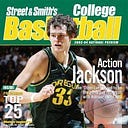The Unholy shines a light on America’s unending obsession with celebrity and fame
For where God built a church, there the Devil would also build a chapel.
Those were the words of Martin Luther, and like any pearl of wisdom that has whistled down the wind of the ages, it puts me in mind of what a wizened elder might say to a spirited youth at the outset of his, say career.
Be careful what you wish for; there’s a seamy flip side to any realized dream.
The hard-earned wisdom of experience, that the Devil, which in this case might as well refer to the baser elements of our nature, knows full well that we’ll never read the fine print he tacks on to our dreams’ disclaimer, those thorny riders attached to the undercarriage of our dreams ready to spring forth from a portcullis when we least expect it. Character might be destiny, but fate is a fickle fucker.
This idea runs alongside something that Quentin Tarantino posited in a funny scene from the film Sleep With Me, that the real story in any film isn’t what’s happening on the surface; the subtext, or undercurrent, is the more fertile thematic soil.
Put simply, subtext is really fun.
Just as that grandly-designed dream, while of course important, doesn’t come close to comprising the entire story. Life boils down to an ability to sort out the problems that emerge in the aftermath of the dream’s realization. That’s the day-to-day drudgery of living; simply fending off our baser instincts, and trying to live well. If that bass line is solid, then you can add some fun flourishes every now and again. It’s a full-time job to not lose our faith.
I thought of this after watching The Unholy, and then rushing home to pull up an interview with Evan Spiliotopoulos, the film’s director, in which he said that he drew heavily upon Billy Wilder’s film Ace in the Hole to root around a particularly nasty trait of the American’s nature: namely, our insatiable need for adrenaline, and the need to do whatever it takes to continue scratching that itch, doused daily with a potent calamine lotion dispensed by our chosen form of media or distraction dealer.
Kirk Douglas stars in Ace in the Hole as a down-on-his-luck reporter looking for a job in Albuquerque. When a man becomes trapped in a mine, he senses sensation and a return to glory and quickly markets the story to the masses. Before long, the national press has descended on the dusty town, a ravenous public not far behind. Douglas milks the story for all its worth; dispensing of his integrity along the way. It does not end well.
Jeffrey Dean Morgan plays another journalist in The Unholy, who is sent to a small town in Massachusetts for a story only to quickly become embroiled in a bigger one that involves the occult. A mute girl is seeing visions of the Virgin Mary. Before long, she can speak; then, she can heal others.
“People want to be told what to do so badly they’ll listen to anyone.” That’s something Don Draper said during one of his bursts of cynicism, but it’s not of the cheap variety. The man had worked in advertising long enough to understand that the American public is so starved of meaning, so ready to dive into the blissful thematic pool exemplified by the Postal Service’s lyric I want so badly to believe that there is truth that love is real that they’ll even latch onto an advertisement selling linens, because it makes them feel something pure they felt sure they’d forgotten.
Cynical manipulation of elemental forces to service an exploitative money-making machine? This is America, dummy. No one covers this theme more fully than the documentarian Adam Curtis, how marketing forces push the cult of individualism to atomize citizens who, starved of love, reach out from their hollowed-out husks to try and heal themselves through buying meaningless things.
What The Unholy gets down to is what Ace in the Hole did years before; asking what is the responsibility of a reporter in an age where sensationalism rules the roost. Jeffrey Dean Morgan fans the flame of this modern-day Jean d’Arc, but he is joined in his sensationalizing by an unscrupulous church authority (played excellently by Cary Ewles) who instinctively senses the possibility for expanding Catholic influence throughout the country, and the world.
The Unholy was a revelation, in large part because it received such indifferent reviews. You have to work overtime to find the good stuff in the current deluge of informational offering; plunge into the daily avalanche and you just might find something of meaning. I could identify with the ravenous public in the film that wanted so badly to believe that these miracles were real, that there was a source of greater meaning to be had than the paucity provided by our current standard of living.
It comes down to something simple. All the best stuff does. The tragedy in Ace in the Hole, as it is in The Unholy, comes down to people acting selfishly in their own interests, as opposed to looking out for others. Sort that out, and you’d be surprised how quickly life improves.
